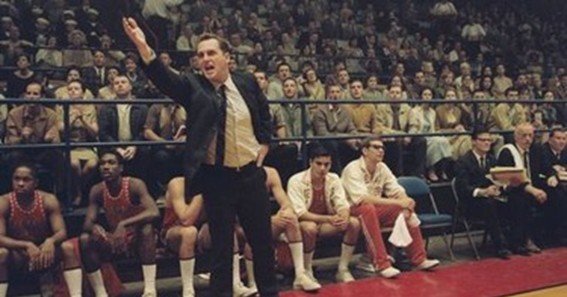The question “Why did the director make the movie Glory Road?“ delves into the motivations behind James Gartner’s decision to helm this significant film. Glory Road recounts the true story of the 1966 Texas Western College basketball team, which, under Coach Don Haskins, started five Black players in the NCAA championship game—a groundbreaking moment in sports history.
James Gartner’s Motivation
James Gartner, primarily known for his work in commercials, was approached by producer Jerry Bruckheimer to direct Glory Road. Initially hesitant, Gartner was drawn to the project upon realizing it wasn’t just a sports movie but a narrative deeply rooted in social change. He stated, “What attracted me to Glory Road was not that it was a sports movie. I never looked at it as a sports movie. It was that other layer of racism and the period. We tend to ignore that today or forget where we’ve been. So this drew me in because of that aspect”.
The story’s emphasis on breaking racial barriers resonated with Gartner, compelling him to bring this pivotal moment in history to a wider audience.
The Role of Jerry Bruckheimer
Producer Jerry Bruckheimer played a crucial role in bringing Glory Road to fruition. He viewed the story as more than a sports drama, recognizing its broader implications on society. Bruckheimer remarked, “What’s so interesting about Don Haskins is that he wasn’t looking to make any kind of statement. He simply was driven to win,” highlighting how Haskins’ actions inadvertently challenged societal norms and contributed to desegregation in sports.
Authenticity and Responsibility
Gartner felt a profound responsibility to portray the events authentically. He collaborated closely with individuals connected to the original team, ensuring the film captured the essence of their experiences. Gartner noted, “I felt a tremendous responsibility to capture the true essence of Haskins’ story. This story is beloved by so many from the streets of El Paso where it took place, to parents telling their children the tale as a bedtime story”.
Impact and Legacy
Glory Road not only entertained audiences but also educated them about a significant moment in civil rights history. By showcasing the challenges and triumphs of the 1966 Texas Western team, the film sheds light on the broader struggle for racial equality in America. Gartner’s direction ensured that the story’s impact extended beyond the basketball court, resonating with viewers and prompting discussions about race, sports, and society.
FAQ
Q1: Was Glory Road director James Gartner experienced in filmmaking prior to this movie?
A1: James Gartner was primarily known for directing commercials before making his feature film debut with Glory Road.
Q2: Did Gartner have a personal connection to the story of Glory Road?
A2: While not personally connected, Gartner was deeply moved by the story’s themes of racial integration and social change, which motivated him to direct the film.
Q3: How did Gartner ensure authenticity in the film?
A3: Gartner worked closely with individuals associated with the original team and paid meticulous attention to historical details to authentically portray the events.
Q4: What was the significance of the 1966 Texas Western basketball team’s victory?
A4: Their victory marked the first time an all-Black starting lineup won the NCAA championship, challenging racial barriers and influencing the integration of college sports.
Q5: How was Glory Road received by audiences and critics?
A5: The film received positive reviews for its powerful storytelling and historical significance, resonating with audiences and sparking conversations about race and sports.
In summary, the motivation behind James Gartner’s decision to direct Glory Road stemmed from a desire to tell a story that transcended sports, highlighting a pivotal moment in the fight for racial equality. By bringing this narrative to the big screen, Gartner contributed to preserving and sharing an essential chapter of American history.










